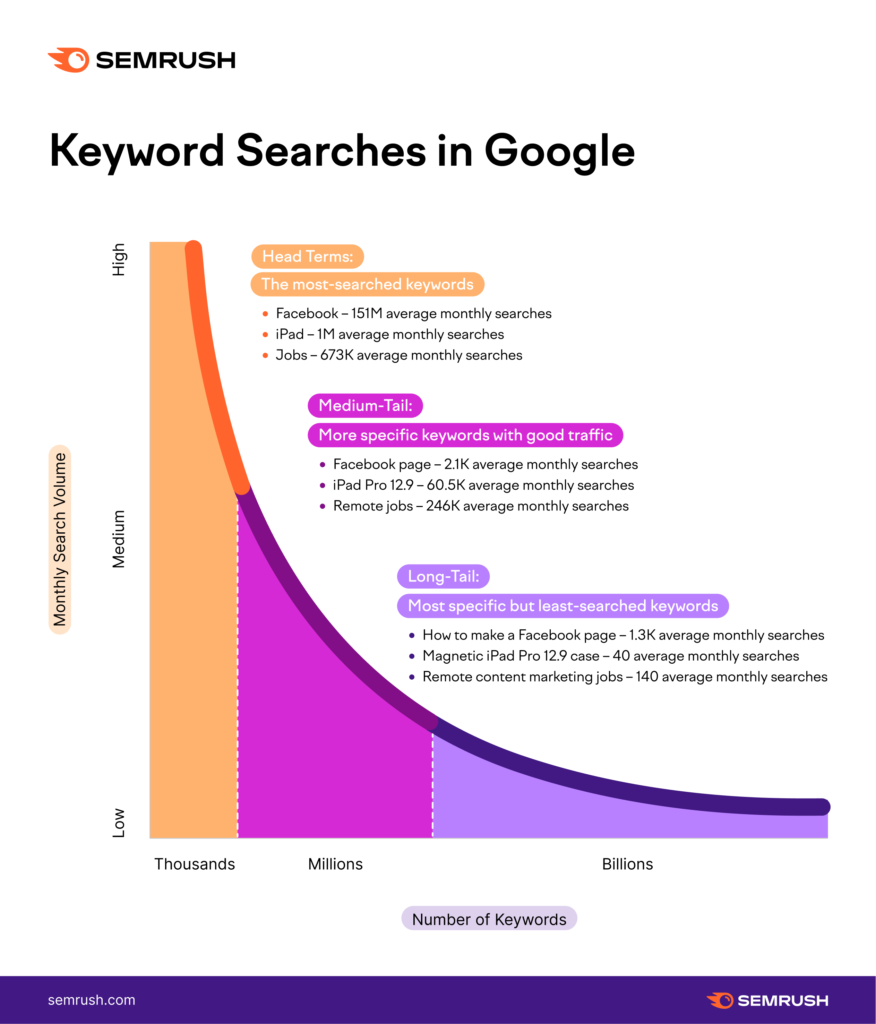Long-tail keywords refer to keywords and phrases that are more specific, often three or more words, and least likely to be searched (e.g. “How to make a Facebook page.”) These keywords rank high in number but low in search volume compared to more basic searches (e.g. “Facebook”). The name comes from the “tail” at the end of a downward-sloping exponential curve.

Photo: semrush.com
Long-tail keywords matter because they make it more likely for a site to rank for someone looking for the specific content the user is looking for by removing a large degree of the competition experienced among “head” keywords (keywords with little to no specificity that generate billions of results.)
Using long-tail keywords makes it more likely that on the rare occasion someone searches for something particular you offer, they convert immediately when your result ranks. For example, even if it is only a few times a month that someone searches for a “thin crust pizza shop open late near me,” and your shop fits that description, wouldn’t it be worthwhile to make sure you rank every time that happens rather than wasting effort trying to rank for “pizza shop” and competing with all kinds of other, flashier semi-Italian eateries that will easily drown out your results?
Long-tail keywords also indicate where people may be in the customer journey process. If your content is focused around making a sale, there is no use trying to rank for users still in a research phase. Conversely, if your content is purely trying to inform, you don’t want to waste effort ranking for purchase-ready terms. This especially becomes important when you’re paying for advertising and you are picking one keyword over another.
Long-tail keywords are important! Learn how to use them.
One Response
This was a very well-written description of long-tail keywords. I like how you included the visual to really help visualize the meaning of a long-tail keyword. The pizza example you used was also really helpful. I think it’s better to get a few customers right away because of their refined search, than getting more searches for a broad term, but your website ranking lower down on the SERP.